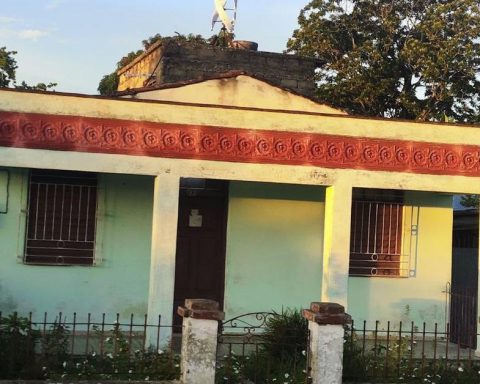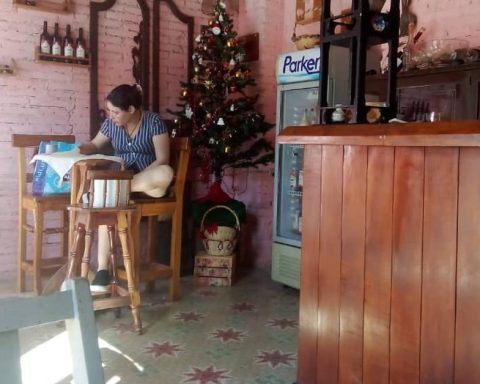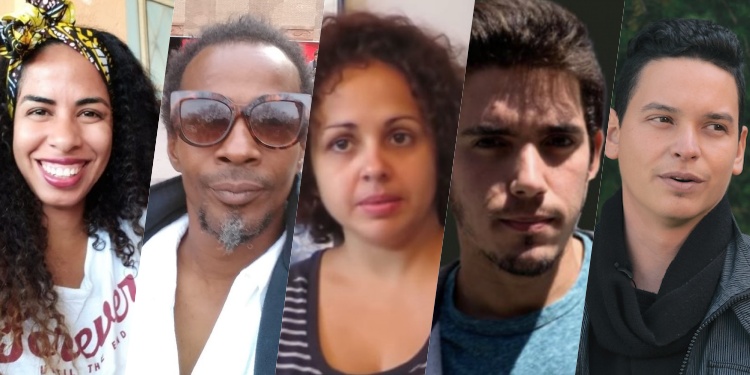The Cuban Minister of Culture, Alpidio Alonso Grau, received an unexpected greeting last Saturday, in his official visit to the Buenos Aires Book Fair, of which Havana is a special guest. On behalf of twenty women who have accused the troubadour Fernando Becquer of sexual abuse, the Colombian Paula Ramírez, resident in Argentina, delivered a letter to the minister demanding justice.
“Last night I looked the Minister of Culture of Cuba, Alpidio Alonso, in the eyes,” Ramírez herself narrated this Sunday Through social networks. “I smiled at her while my dear colleague María Santucho, coordinator of the Pablo de la Torriente Brau Center, told her: ‘She is Paula Ramírez and she wants to tell you something.’ I told her: I am one of the women that Fernando Bécquer abused. Her face changed completely. I felt how he shuddered. At his side was Abel Prieto, president of Casa de las Américas, who also shuddered.”
According to Paula Ramírez, Bécquer abused her in 2006 in Colombia. “I told him (the minister) that he made me is classified as a sexual crime in the Colombian Penal Code but that in order to judge him he had to be extradited.”
Ramírez conveyed to Alonso that the justice system in Cuba has not given him “the guarantees” so that he can deliver his testimony and his evidence, “because there is only one mail that the acknowledgment of receipt does not respond to you.” The minister, the woman assures, told her that “Fernando Becquer’s case is in the courts of Cuba, that if it is verified that what we say is true, it will fall the full weight of the law on him and that we, his victims (or survivors) are going to be satisfied”.
“Well, he doesn’t have house arrest and he goes out very occasionally and every time he goes out, everything comes up”
She replied that the troubadour “continues to go on stage”, to which Alonso replied: “No. He knows he can’t do it.” At the insistence of Ramírez, who replied that Bécquer “goes out into the street and frequents public places,” the minister reiterated: “Well, he doesn’t have house arrest and he goes out very occasionally and every time he goes out, it all comes crashing down on him.” “.
Alonso recommended to Ramírez that the women also report the private messages that they claim to be receiving from Bécquer threatening them so that they desist from reporting him.
Last December, the independent magazine The sneeze public a report with testimonies of five young people who accused the musician, in a very detailed way, for different episodes of abuse between 10 and 20 years ago. The singer-songwriter then denied the accusations and described them as “slander”. “I don’t believe anything, I believe in the Revolution,” he assured at the end of a concert in Havana.
Months later, some thirty women joined these complaints with their testimonials.
In an unusual move, the official Federation of Cuban Women (FMC) and the National Center for Sex Education (Cenesex), said they supported these women from the beginning.
“For the FMC, nothing is alien to it, much less when it comes to defending women’s rights. Guiding and accompanying women in each process has been a priority for the women’s organization,” wrote the organizationwhich until then ignored these types of complaints and denied the existence of femicides in Cuba, while Cenesex attributed them to “campaigns against the Revolution.”
________________________
Collaborate with our work:
The team of 14ymedio is committed to doing serious journalism that reflects the reality of deep Cuba. Thank you for joining us on this long road. We invite you to continue supporting us, but this time becoming a member of our journal. Together we can continue transforming journalism in Cuba.


















